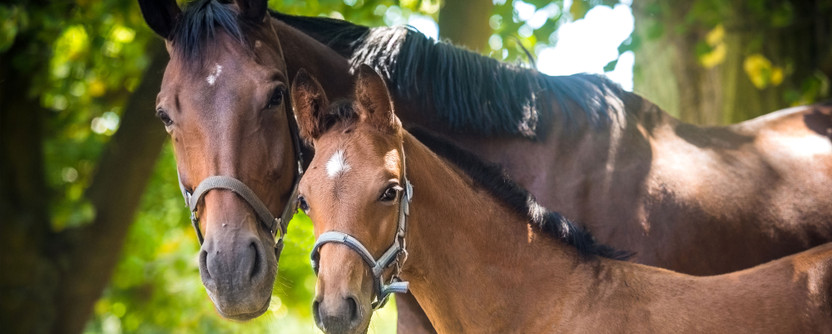Managing Mares in Season
Posted by Equine Essentials Direct on 10th May 2023
Owners of cycling mares will know that horses typically experience periods of heat from April to October. A succession of cycles occurs, each lasting approximately 21 days, in which the mare is fertile for around seven days. The length of the cycle will depend on both the horse’s climate and living conditions, with the first cycle usually taking place when she is aged around 15 to 18 months.
Just like humans who are affected by their monthly cycles in different ways, you may find behaviour changes in some mares when they are in season. She might seem grumpier or more temperamental than usual, or perhaps she is adverse to being touched or groomed, with particular sensitivity in her back and sides. Some owners also notice a dip in performance when their mare is in heat. The key is to be sympathetic to your horse by adjusting her training schedule accordingly.
If you are not using your mare for breeding, there are a number of options available to help keep her calm during her cycle. Firstly, it is a good idea to consider her stable companions, ensuring she is compatible with her neighbours, moving around your horses if necessary. When it comes to turning out, some mares are more comfortable around geldings than other mares. Your animal’s immediate environment can have a huge impact on her behaviour, so it is important to ask yourself if she is happy and whether there is enough space for every horse in the field, working on roughly three acres each.
The next step is to think about her nutrition. Horses prefer to have access to a range of different forages to help support the gut, brain function, and hormone regulation. You may choose to supplement your mare’s diet to soothe them when they are in season, either continuously or on an ad hoc basis. Herbal products that relieve stress are one of our most popular ranges. We offer a fantastic selection of liquids, capsules, powders and pastes from leading brands including Nettex, Global Herbs, Equine America, Hilton Herbs and NAF, geared towards your horse’s own unique requirements. If you would like any advice on which product to choose, we would be more than happy to help.
However, if your mare is showing persistent signs of discomfort, we strongly advise you to call your vet to discuss your concerns. They may decide to prescribe medications to control the cycle, or alternatively your horse’s behaviour could be a sign of another underlying problem. Rectal palpation, ultrasound and hormonal testing can be used by your vet to find out exactly what is going on.
Last but not least, please bear in mind that every mare is different, so some approaches will work better for your mare than others. It is a case of trial and error to learn which supplement or hormone therapy is best matched to your horse. By taking steps to explore the different approaches to help calm your mare, you are acting in their best interests and will build a stronger relationship as a result.
To view our complete range of calming supplements, visit https://equineessentialsdirect.co.uk/stable-field/supplements/calming/
If you have any other questions, please don’t hesitate to give us a call on 01494 872882. We look forward to talking to you!

